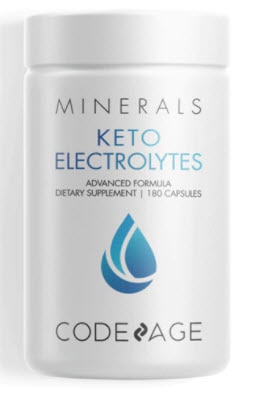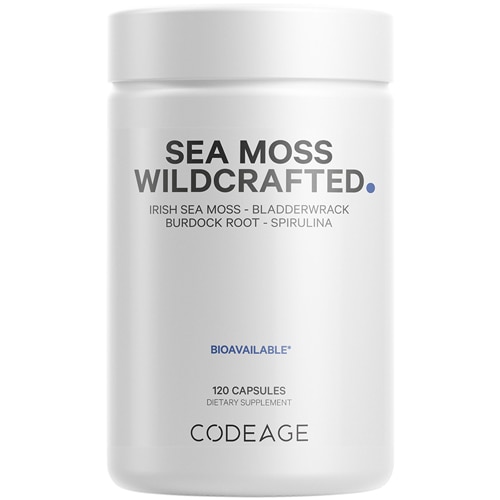Electrolytes are
minerals present in your blood, urine, tissues, and bodily fluids. They are called electrolytes because they have an electric charge. Electrolyte minerals include sodium,
potassium, calcium, chloride, phosphate and
magnesium.
Electrolytes are vital for many bodily functions. These functions include balancing body water and pH level, moving waste out of your cells and nutrients into your cells, and ensuring the proper function of your heart, brain, muscles and nerves.

What causes electrolyte imbalance?
Your body gets electrolytes from food and drink. Although the body is relatively good at balancing your electrolytes, your levels can become too high or too low when your body water levels change dramatically. For instance, if you lose much more water than you take in, you can become dehydrated. If you drink too much water without electrolyte minerals, you become overhydrated. In either case, an electrolyte imbalance will occur.
Some medical conditions and situations can cause electrolyte imbalances, and these imbalances can lead to extreme health concerns and can be life-threatening. If you have a medical condition or an illness that may lead to an electrolyte imbalance, it is vital to get emergency medical care.
However, there are also less severe causes of electrolyte imbalance that you
can address at home with proper nutrition and supplementation. The most
common symptoms include headaches, dizziness, fatigue, confusion, increased heart rate, muscle cramps or weakness, poor coordination, and frequent urination. Mild or gradual electrolyte imbalances may not result in any noticeable symptoms.
Exercising in hot or humid conditions
Exercising in the heat and humidity can cause you to lose a lot of body water through sweat. The
primary electrolyte that is lost through sweat is sodium. Although sodium has been given a bad rap, it is an essential mineral that helps your body retain fluid. Without enough sodium,
you can quickly become dehydrated in hot, humid conditions.
When this occurs, your
performance will suffer, you will have a reduced ability to tolerate heat, and you could suffer from heat strain or stroke. Further electrolyte imbalance can cause the symptoms discussed previously, such as headache, dizziness, confusion, and more.
Knowing your
sweat rate is wise. A typical sweat rate is 1 to 4 quarts (32 to 128 fl. oz) per hour. To find your sweat rate, weigh yourself nude before exercise and then again after training without consuming any food. Keep track of any fluids you ingest during training, to add them to your total needs. A loss of 1 pound of body weight over an hour training session means you’ve lost 16 ounces that should be replaced by fluid. Add the number of ounces you drank during the training session to this total. It’s best also to include an
electrolyte solution if you’ve been training for over an hour to prevent the adverse effects of an imbalance.
The Fix: To prevent an electrolyte imbalance from exercising in the heat, you must avoid the issue by consuming electrolytes before, during, and after your training. For safety reasons, avoiding extreme exercise in the heat is the best choice.
Drinking too much water
Some athletes and casual exercisers drink an overabundance of plain water to prevent dehydration. Others consume a lot of filtered water throughout the day because getting in your nine glasses is a concept that’s been considered optimal for health.
However, if you drink too much de-mineralized water, you can end up with an electrolyte imbalance. This is because, in nature, water is full of minerals—the same minerals necessary to balance electrolytes. Drinking too much water
can lead to hyponatremia, which is low blood salt levels that result from abnormal fluid retention.
The Fix: Try to only drink according to your thirst level. This usually means 4 to 6 ounces of water every 20 minutes during exercise. If you are exercising for an hour or more, you should add an electrolyte beverage to your hydration, especially one with sodium.
Low-carb and keto diets
When you do not consume many carbohydrates due to a low carb or
keto diet, insulin levels are reduced. When insulin levels fall, the kidneys retain less sodium. When you excrete water through urine or sweat electrolytes (in particular calcium, sodium, chloride,
potassium, magnesium) are eliminated along with those fluids.
Replacing these minerals is vital to avoid adverse symptoms discussed previously, such as lightheadedness, headaches, nausea, and other effects. Some people on the
keto diet complain of something
called the keto flu, which is feeling as though you have the flu due to the impacts of significantly reduced carbohydrate intake. This effect usually passes but
having your electrolytes balanced can help prevent the worst of it.
The Fix: If remaining on your low-carb or keto diet is desired, balancing your electrolytes with a low to zero sugar option is ideal. A good example is
Codeage Keto Electrolytes which includes calcium, magnesium, potassium, and sodium without the added sugars that sports drinks contain.
On these types of diets, focus your nutrition on foods that contain a lot of the necessary minerals to help prevent an imbalance that are still low-carb. These foods include leafy greens, sea salt, nuts and seeds, chia, watermelon, avocados, coconut milk, green tea, and bone broth.
Endurance training
Workouts lasting less than an hour typically do not require a need for electrolytes. However, if you are
training for longer than 1 hour or are sweating heavily, then it is wise to consider addressing your electrolyte balance with specific nutrition strategies such as an electrolyte supplement.
The Fix: Bring along an electrolyte solution when you participate in endurance training.
Research shows that electrolyte-rich beverages are better at preventing muscle cramps compared to drinking
plain water.
It’s also wise to include foods in your diet that contain the minerals necessary to prevent an imbalance discussed above, plus carbohydrate-rich options such as beans and legumes, sweet potatoes, bananas, coconut water, vegetable juices, oats, and oranges.
Very low-calorie diets or rapid weight loss
Very low-calorie diets and rapid weight loss are not recommended for most people and should only be done under medical supervision. If you’ve been dieting with an extreme calorie deficit or have lost a significant amount of weight in a short period, you may end up with an electrolyte imbalance due to insufficient nutrient intake.
Sometimes older adults with low appetites end up consuming too few calories and minerals as well. Electrolyte imbalances are more common among this group of people.
The Fix: Consume all the
nutrient-dense foods listed in the previous sections. Consider taking an electrolyte supplement as well, but discuss your diet and weight loss with your health care provider. Losing weight quickly and eating minimal calories is not healthy or sustainable for most people and requires medical advice.
Featured Product






